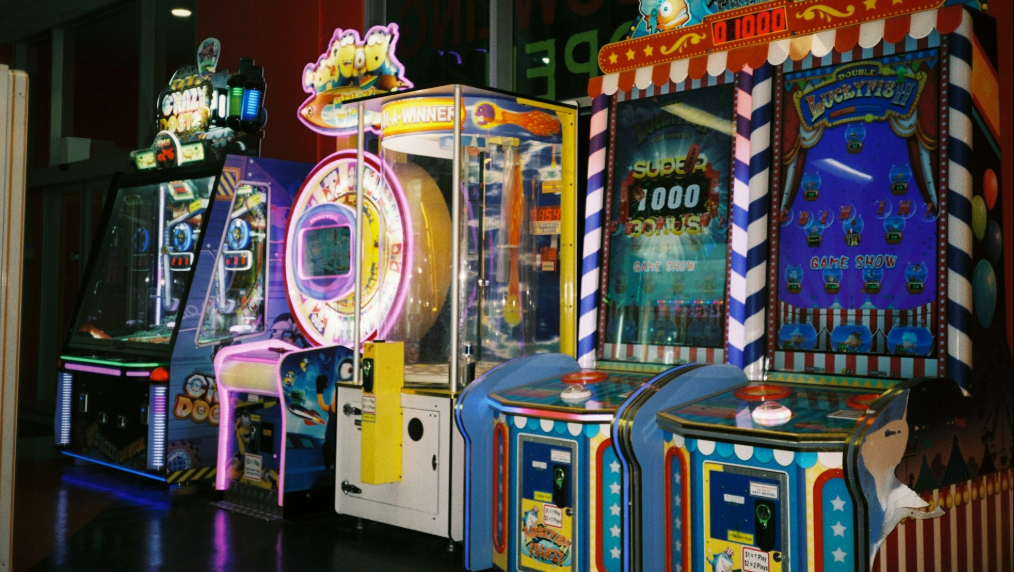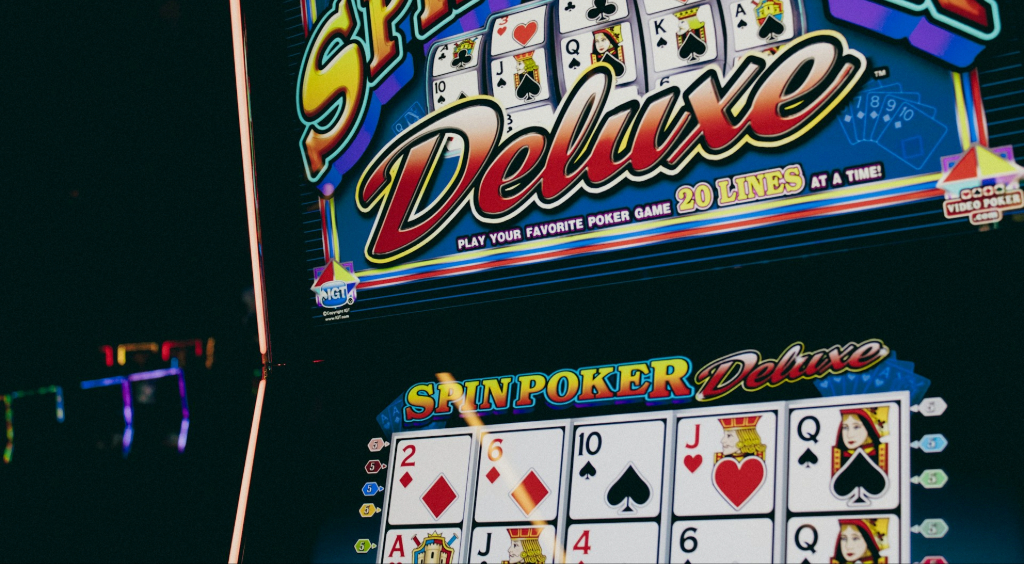Skill-Based Casino Games: Myth, Math & The Illusion of Control
Skill-based casino games lure players in with the promise that smart play can tilt the odds in their favor. Sometimes that’s true, but usually, it’s not. From blackjack to crash games like Aviator, the line between skill and luck has always been tough to discern. And that’s where our story starts.

Skill based casino games are merging with Arcade Style Games. © Christine Enero, Unsplash
What Are Skill Based Casino Games
Many people in the casino industry will tell you that Edward O. Thorpe’s 1965 book, “Beat the Dealer,” marked a seminal moment in transforming Las Vegas from a sleepy desert town with some mob ties into the powerhouse world capital of gambling it is today.
How could a book that laid out an exact plan for taking the House’s money in blackjack drive a gambling boom that today sees $25 billion a year in casino revenue just in Las Vegas alone, you might ask? Well, that is the powerful allure of skill-based casino games.
The general public has known for 60 years that blackjack could be beaten. Truth be told, many hundreds of thousands of mostly young men with a dream have tried their luck.
Still, despite card counting being a simple matter of addition and subtraction, with a bit of dividing for the true count, very few have walked away ahead.
This is due to a couple of factors, the most important being that you must hide your blackjack prowess from the casino daily; they only need to catch you once. Once caught, you go into the databases, including a facial recognition file, name, aliases, SSN, and anything else the casino might need to find you if you attempt to play again.
They will be sending out that file to every casino in about a 100-mile radius as a Be On the Look Out (BOLO) email.
It’s another Vegas industry belief that 9/11 did more to stop card counting than any surveillance room ever built. The laws behind identification and buying in excess of $10,000 without providing proper legal identification soon meant that the age of fake IDs and entire fake personas, which were often used by card counters to avoid detection, ended almost overnight.
It’s probably important to point out that the other reason counters never really had a chance of bringing down the House in Las Vegas is the volatility and bankroll needed when you only have a slight advantage. A skilled card counter typically has only 1% advantage. The best counters in the world seldom exceed 1.5% if they have the wits to use even a bit of cover to avoid being detected.
That is simply a lot of deviation to swallow, which means you need bankrolls several hundred times your max bet and the ability to sustain losses that might drag on for months. The Kelly criterion and its harsh math lay out just how much you will need for how many hands to have a hope of succeeding, and it can be a wake-up call for many neophyte card counters.
But the important thing here isn’t how many failed; the millions upon millions flocked to play blackjack because they had heard it could be beaten. Beat the Dealer, a book filled with math and statistics, was on the New York Times Bestseller list when it first debuted.
People didn’t want to know how to beat blackjack; they just wanted to see that it could be, and for the next sixty years, that knowledge, and the myth of the card counter winning millions playing cat and mouse with the House, was enough to drive a boom in blackjack play that the casinos had never seen before or since.
Video Poker Comes to Vegas
And Vegas being Vegas, they took note. You can easily see the lessons learned by the casinos about card counting and blackjack in the next big boom in Southern Nevada gaming, video poker. By 1979, IGT had released its first Draw Poker machines, and throughout the 1980s and into the 1990s, these machines would spark another massive wave of gambling fever.
One of the main reasons for its appeal was a dissociative, almost trance-like state reported by some users. More than slots, this game allowed a player to shut down parts of the brain and enter a “zone” of reduced self-awareness where the machine play is front and center and everything else sort of slides to the side.
So much so that there were numerous articles in major publications referring to the machines as the crack cocaine of the gambling world. Some studies at the time reported as many as 75% of those in gambling addiction programs cited video poker as their primary wager.
Unlike crack, the industry recognized that to entice the masses, it needed a hook, and it learned from blackjack that the best hook was perceived advantage. Many casinos offer Jacks or Better Video Poker at payback tables of 100.8% or Deuces Wild at 100.7%. The allure of supposed skill-based casino games had struck again. But this time with a vengeance.
The illusion of control and the immersive sensory experience combined with the belief that the game could be beaten was a trap that ensnared many gamblers. However, a rare individual set down, played a perfect strategy, maintained their bankroll requirements, and managed to come out ahead on the other side.
Enter Today’s Crash-Style Arcade Games like Aviator & BitRocket
This leads us to today’s arcade casino games, such as Aviator and BitRocket, which have taken a page from the long histories of both blackjack and video poker, becoming wildly popular games that the public believed could be beaten. In turn, they added billions to the casino’s bottom line.
Perhaps the biggest tie between these games and the “skill” based game of old is the illusion of control. Crash-style games are immensely popular because they tie that to the one thing missing in blackjack: the potential for high returns. This high-risk, high-reward type of play was one of the keys to video poker’s rise in the 80s.
As the multiplier ticks over and you have to decide when to cash out, you can feel a notable rise in pulse and concentration, and, of course, that sense of making the final decision when you feel most in control.
The key difference here is that today’s casino arcade games are generally run on the blockchain, which means that they are provably fair up to the point of whatever RTP the casino has set.
Still, there won’t be even the slightest chance that even the most skilled player will be able to get even that 1% player advantage that those legendary blackjack layers of old got or even that 7% that a highly skilled video poker player who have memorized 100 lines or more of basic strategy for various paytables might get.
Today’s crypto casinos may offer games that appear to be mathematically sound and are even demonstrably so, but they are still not in your favor.
Our Final Takeaway
Crash games like Aviator deliver that same addictive illusion of control, high risk, and immense emotional spikes. But unlike classic skill games:
- You can’t out-play them to get ahead.
- They’re designed to sustain the House edge.
- Their thrill comes from perception, never true advantage.
So, yes: they’re fun, immersive, and built for engagement. But don’t confuse that with actual advantage. If you’re chasing long-term profitability through skill stick to blackjack or video poker. But if you’re chasing adrenaline, crash games can certainly deliver.

 Reel Love: 5 Slot Games to Match Every Valentine’s Mood
Reel Love: 5 Slot Games to Match Every Valentine’s Mood
 Best Christmas Slots for 2025
Best Christmas Slots for 2025
 7 Politically Incorrect Slots for the Connoisseur Who’s Seen It All
7 Politically Incorrect Slots for the Connoisseur Who’s Seen It All
 Casino Payment Delay Red Flags: When Waiting Is a Concern
Casino Payment Delay Red Flags: When Waiting Is a Concern